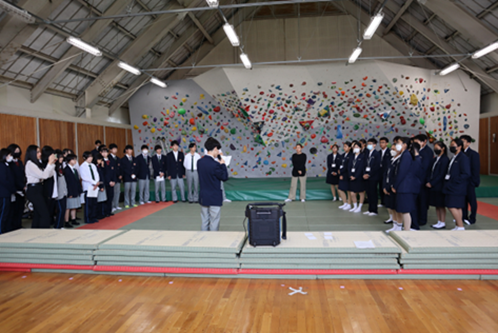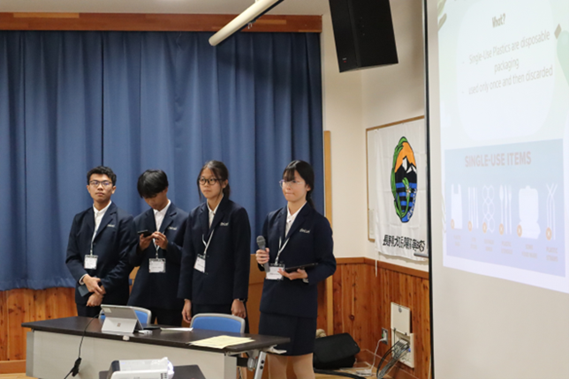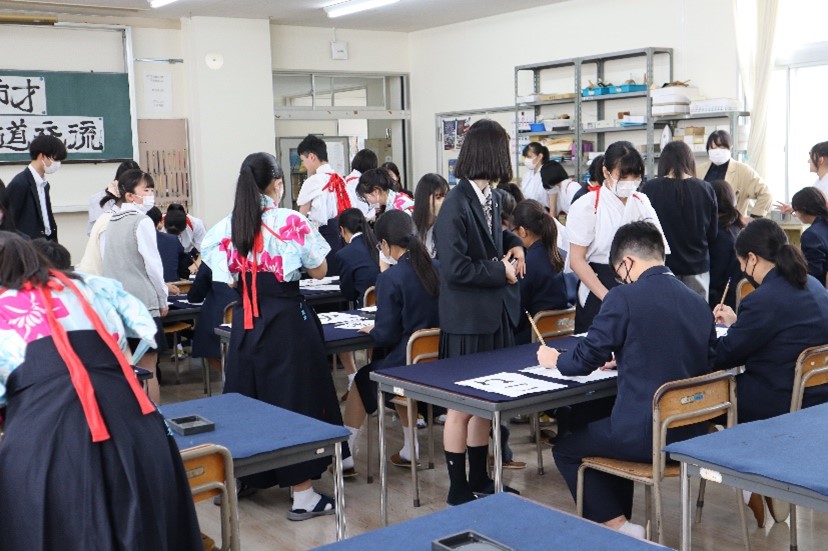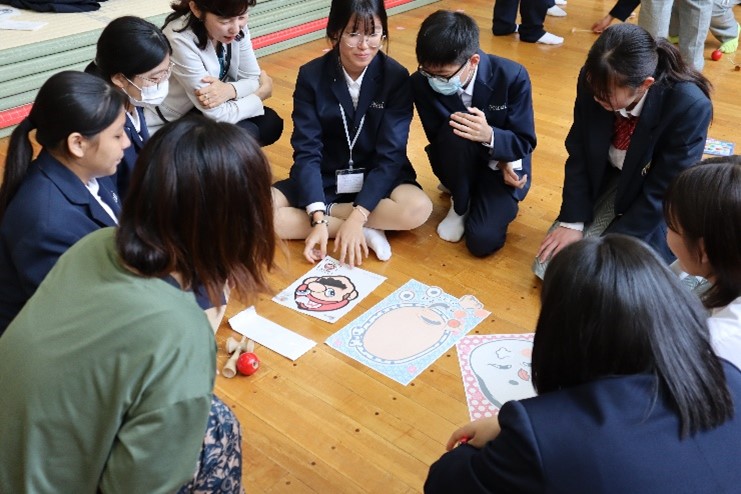Cross-border Exchange
20 students from Peicai Secondary School in Singapore, approximately 40 students from Hakuba High School in Hakuba village, Nagano prefecture, Japan, and about 30 students from Omachi Gakuyo High School in Ohmachi city, Nagano prefecture, Japan shared their thoughts and practices on global environmental issues, such as sustainable water resource use, global warming, and ocean plastic pollution.
Deepening Bonds through Cultural Exchange
Initially appearing shy, the students from Singapore warmed up to their older Japanese counterparts through friendly interactions and experiences in Japanese culture (archery, calligraphy, bouldering, and spinning top), promising to meet again with smiles at the end of the exchange.
Overcoming Language Barriers
This experience reaffirmed that many young people can understand each other by working cooperatively on common issues, transcending differences in language and culture.

Activity Introduction
In May this year, 20 third-year students from a public secondary school in Singapore, approximately 40 students from Hakuba High School, and about 30 students from Omachi Gakuyo High School carried out joint research and experiential exchanges on global environmental issues. The main topics of discussion were global warming, sustainable use of water resources, and marine plastic pollution, with students from different cultural backgrounds sharing their views on these issues. Furthermore, at Omachi Gakuyo High School, they also shared their ideas and practices regarding support for children facing difficulties in their own country, as well as in Asia and Africa. They are actively addressing these challenges through their own efforts and collaboration with local communities.
At the start of the exchange, the students from Singapore, new to the experience, seemed nervous. However, with the warm encouragement from the Japanese high school students, and non-English-speaking students communicating through playing spinning top and experiencing calligraphy together, their nerves gradually eased. This approximately 2.5-hour exchange served as a reminder of the importance of understanding and cooperating beyond borders and languages.
The three-day exchange demonstrated that mutual understanding and cooperation on common issues can easily overcome the barriers of culture and language. This activity laid the foundation for them to take proactive actions on global environmental issues as next-generation leaders.


This activity was carried out as part of the ASEAN-Japan Sustainable Green Project under the 2023 business year of the ASEAN-Japan Centre. It was conducted with the full cooperation of the students, principals, vice-principals, and teachers in charge of international exchanges from Peicai Secondary School, Hakuba High School, and Omachi Gakuyo High School.


